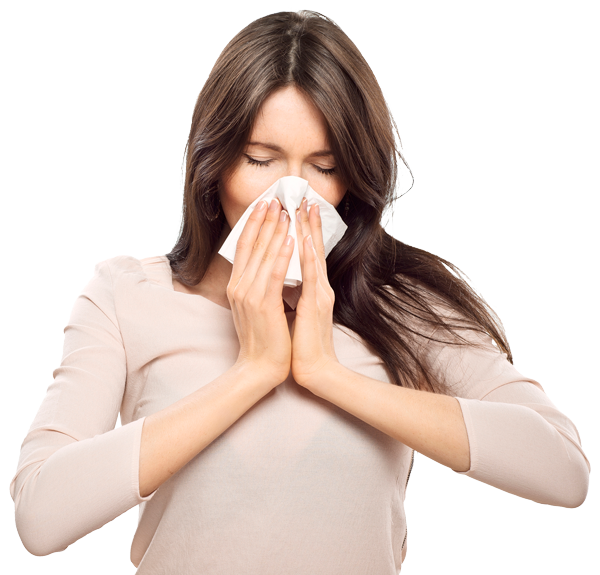Cold & Cough Expert in Perumbakkam
Your Trusted Partner in cold & cough
Cold is an infection of your nose, sinuses, throat. It spreads easily especially in homes, classrooms and workplace moreover in a place were everyone will gather together.We are here to provide you with top-notch care and guidance to tackle asthma and related respiratory conditions.

Understanding Cold & Cough
Symptoms of Cold & Cough:
- blocked or runny nose
- coughing
- sore throat
- sneezing
- lethargy
causes of Cold & Cough:
- Bronchiolitis (younger children) or bronchitis (older children)
- Laryngitis
- sinusitis
- whooping cough
- pneumonia
- Asthma
- COVID-19
Mostly cough and cold will get through viruses and cause a mild sickness but it will go on its own without taking any treatment.
Some of these conditions can be self-treated in home only no need to consult a doctor but for others this condition may be severe mostly for old aged people, so in that case it is better to consult a Hospital
When should I seek medical help for a Cough or a cold?
After our own self treating does not give much results and you concern about your health then you should consult to a nearby Hospital Be aware to seek medical treatment if you feel very unwell with symptoms such as:
- Wheezing
- A ‘sucking in’ of the skin around the throat or under the ribs when breathing in
- Flaring of nostrils when breathing
- Breathlessness (only being able to speak a few words at a time)
- Fever with cold symptoms
How can I prevent Coughs and Colds?
Preventing cough and cold completely can not be possible but if we take some preventive measures, you can reduce the chance of getting sick.
These include:
-
- Frequent handwashing especially after coughing, sneezing or blowing your nose,
- Coughing or sneezing into your elbow,
- Avoid sharing utensils and cups with others,
- Using tissues instead of hankies and throwing them out straight away.
Why do children and babies get more Colds?
The common cold in children and babies occurs more often because they haven’t been exposed to as many viruses as adults. Their immune system have to learn how to recognize and fight new germs.
Before turning 2 years old, a baby can get as many as eight to 10 colds a year. By the time you become an adult, you’ve had many colds. It’s easier for your immune system to identify and attack similar viruses.
In addition, children are in close contact with other children. Kids typically don’t cover their coughs and sneezes or wash their hands before touching their faces — steps that prevent the virus from spreading.
Cold viruses can live on objects for several hours. Babies often pick up objects that other babies have touched. If a baby touches something that has cold germs on it, then touches their mouth, eyes or nose, the germs can infect them.
Can the common Cold be prevented?
There are several steps you can take to prevent a cold, including:
- Washing your hands: Wash your hands frequently, especially before eating or preparing food. Also, wash your hands after using the bathroom, wiping your nose or coming into contact with someone who has a cold.
- Avoiding touching your face: Cold viruses spread from your hands to your eyes, nose and mouth.
- Cleaning frequently used surfaces: Viruses can live on doorknobs and other places people often touch.
- Using hand sanitizers: When you can’t wash your hands with soap and water, use alcohol-based hand sanitizer.
- Strengthening your immune system: Get enough sleep, eat a healthy diet and exercise so your body is ready to fight off germs.
- Staying home: To make sure you don’t spread the cold to others, stay home when you’re sick.
How are coughs and Colds treated?
Rest and Hydration:
Get adequate rest and stay well-hydrated by drinking fluids like water, herbal tea, and broths.
Avoid Irritants:
Stay away from smoking and other irritants that can worsen symptoms.
Home Remedies:
- Honey is a natural cough suppressant and can be given to children over one year old.
- Humidifiers and steam inhalation can relieve congestion.
- Saltwater gargles ease a sore throat.
- Nasal saline drops help clear nasal congestion.
Prescription Medications:
In some cases, if the symptoms are severe or complications arise, a healthcare provider may prescribe antiviral or antibiotic medications. These are not typically used for common viral colds but may be considered in specific situations.
Herbal Remedies:
Some herbal remedies, such as ginger, eucalyptus, or peppermint tea, are believed to provide relief from cold symptoms. Be sure to consult with a healthcare provider before using any herbal remedies, especially if you have underlying health conditions or are taking medications.
Frequently Asked Question on Cold & Cough
A typical cold can last from a few days to about two weeks, with symptoms often peaking around the third or fourth day.
Practicing good hand hygiene, avoiding close contact with infected individuals, and getting an annual flu vaccine can help reduce the risk of getting a cold.
Practicing good hand hygiene, avoiding close contact with infected individuals, and getting an annual flu vaccine can help reduce the risk of getting a cold.
It’s best to rest and recover at home when you have a cold to prevent spreading the virus to others and to allow your body to heal faster.
The common cold is typically spread through respiratory droplets when an infected person coughs or sneezes. It can also spread by touching a surface or object with the virus on it and then touching the mouth, nose, or eyes.
No, antibiotics are not effective against viral infections like the common cold. They are only useful for bacterial infections. Rest, hydration, and over-the-counter medications to relieve symptoms are commonly recommended for colds.
